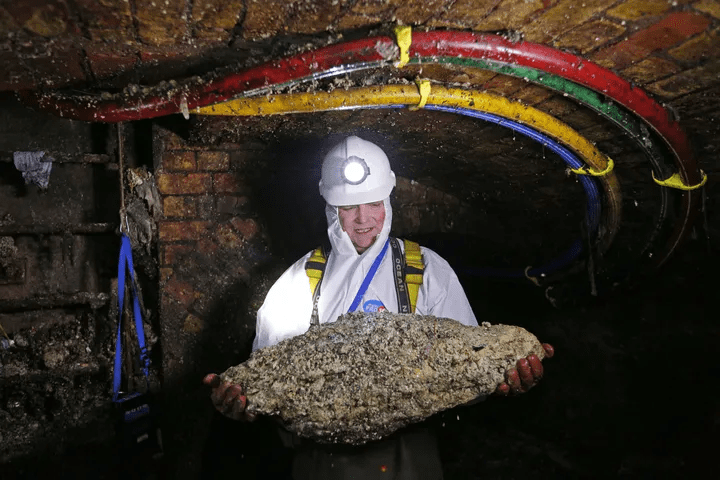After frying up that tasty bacon, browning ground beef for taco Tuesday, or sautéing your veggie burger in coconut oil, what do you do with your pan? If you clean the pan in the sink and dump the grease down the drain, you are certainly not alone, but you’re also not doing yourself (or your neighbors) any favors.
Oils (including butter) are typically liquid when they’re warm, but quickly solidify as they cool — even to room temperature. As this happens, they can collect in your drain trap, as well as along the insides of pipes farther down the line. This means that even small amounts of oil down the drain can build up over time, causing serious damage to your plumbing — and even your town’s sewage system.
“Here’s what happens when you put oil down the drain: It makes its way through your pipes and gets into the sewer, where it joins up with the area’s wastewater,” writes The Daily Meal’s Dan Myers. “This wastewater can contain a wide assortment of chemicals as well as other people’s grease, and when fatty acids bond with calcium (which is common in sewer water), the two bond into a soapy, waxy compound. These little fatty blobs stick to each other as well as the walls and ceiling of the sewer, creating something that’s called a ‘fatberg’ (yes, a fatberg). These fatbergs continue to grow and grow over time; one that weighed 130 tons was recently removed from a British sewer system and a part of it is now on display in a museum!”
To make matters even stinkier, food particles that are washed down the drain also tend to get caught up in oils as they harden, which can lead to some really funky and unpleasant odors.

So, here’s what you do: Pour the hot grease into an old yogurt tub or aluminum can and wait for it to cool before tossing it in the trash. We recycle around here, so we totally understand if the idea of tossing a perfectly recyclable plastic container into the trash is painful — it doesn’t really matter what kind of receptacle you use to collect your grease as long as it’s not your drain. You can keep it under your sink or in a discreet corner and keep adding to it until it’s full before trashing it, too. Sometimes, you can even give your used cooking oils to local recycling centers to be made into biofuel (check with yours to see if that’s the case).
Here’s some more helpful info on how to keep your drains in good shape. If it turns out that these hot tips are too little, too late, just give us a call and our expert drain techs will come on out and clear your drain so that it’s good as new.
The post Grease + Drains = A Recipe for Disaster appeared first on Wolcott Services.

